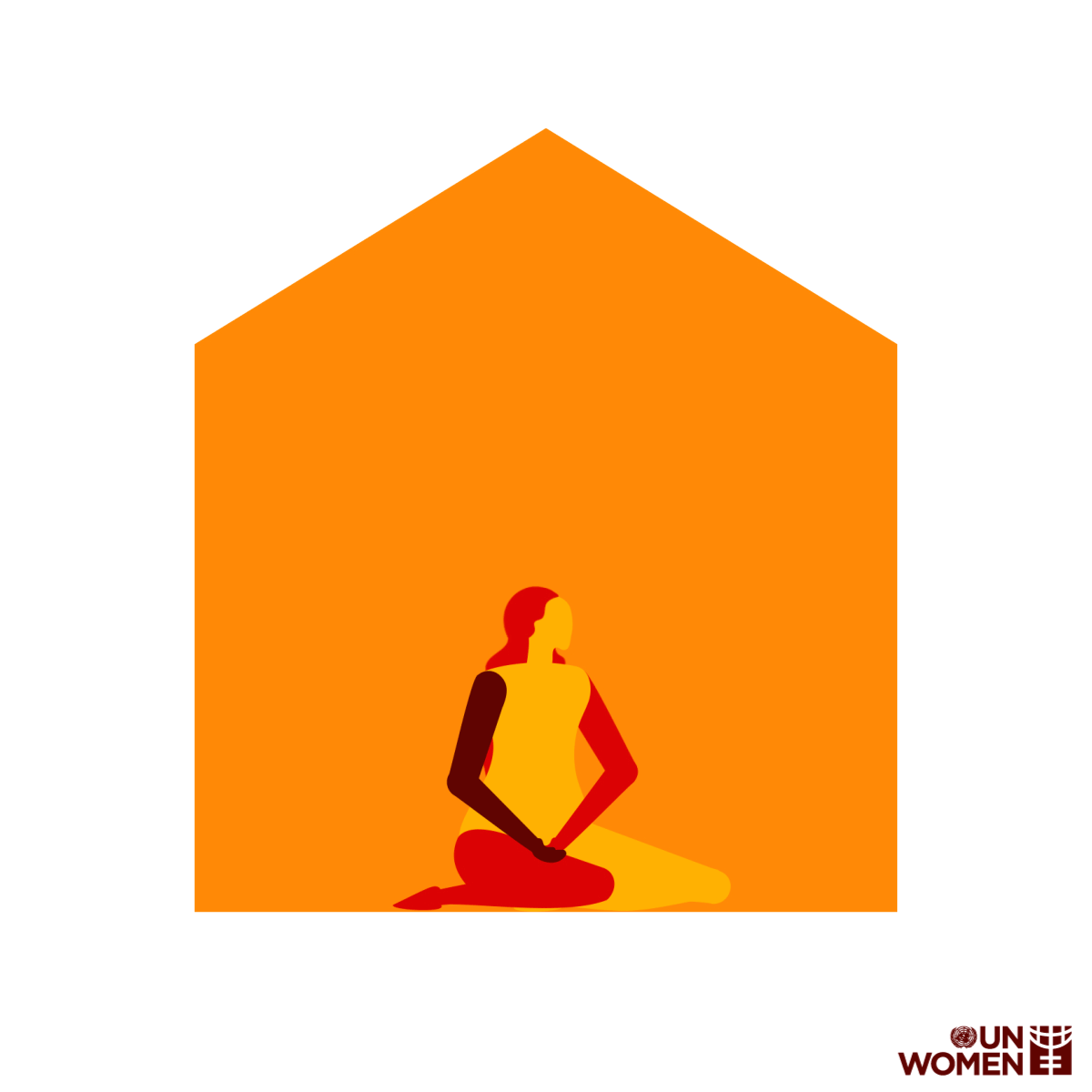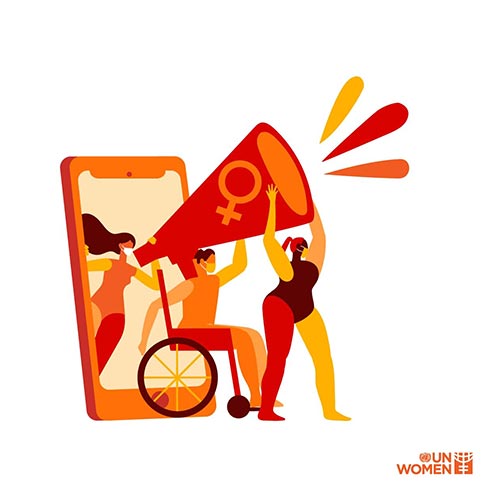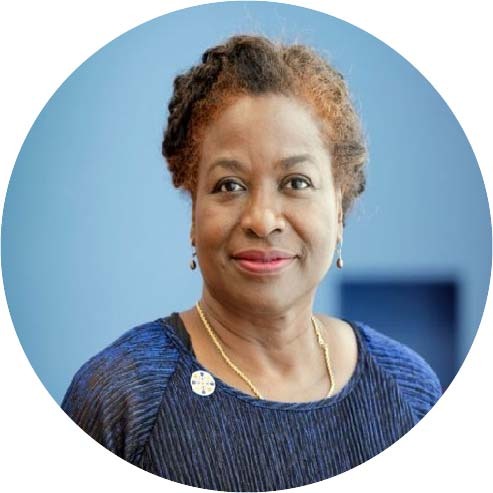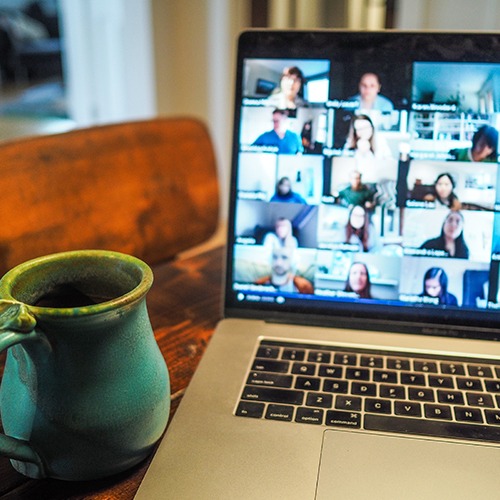How can YOU Orange the World to End Violence Against Women?
November 25th marked the start of the UN Women’s Orange the World Campaign. With the colour orange representing taking a stand against gender-based-violence (GBV), the campaign was designed to mobilise action against the global crisis of Violence Against Women and Girls (VAWG).

Globally, 249 million girls aged 15 to 29 have experienced some form of physical violence in the past 12 months, and less than 40% of women who experience violence report it or seek help. 87,000 women are also violently killed each year, with more than half being killed by intimate partners or family. VAWG is a pervasive global challenge affecting women in all their diversity, and is a product of unequal gender power relations, harmful stereotypes and gender discrimination.
VAWG is more widespread in fragile and conflict-affected countries than peaceful countries. The breakdown of protection structures, disruptions to family and social networks, displacement, and many other conditions of war often create heightened opportunities for GBV. In South Sudan research indicates that 65% of women have experienced physical and/or sexual violence in their lifetime. This is often compounded by the prevalence of cultural practices such as female genital mutilation, a form of VAWG, which in Somalia affects 98% of women and girls.
2020 has been framed by Covid-19 as a turbulent year of uncertainty. Any progress that had been made in combatting VAWG has been shattered. The implementation of lockdown measures has dramatically escalated levels of violence, especially domestic violence, with some countries’ levels of GBV increasing by 30% since March. This reaction is typical of crisis situations and the same escalation occurs during conflict. But where VAWG is a devasting norm in many conflict-affected countries, the ‘shadow pandemic’ has reinforced the urgent need to protect women and girls, making this year’s global VAWG campaigns exceptionally important.
Orange the World for #16daysofactivism Combatting Violence Against Women
Coordinated by the Centre for Women’s Global Leadership, 16 Days of Activism Against Gender-Based Violence is an annual global campaign which launched in 1991 to challenge VAWG in all its forms. Each year it begins on the 25th November, the International Day for the Elimination of Violence against Women and runs until the 10th December, Human Rights Day.
Initially starting with only 14 countries, there are now over 186 countries and territories involved in the campaign, and close to 6,000 participating organisations worldwide. The campaign has also evolved to include the UN Secretary General’s UNiTE by 2030 to End Violence Against Women Campaign, which is marking the 16 Days this year with the theme ‘Orange the World: Fund, Respond, Prevent, Collect!’ Orange symbolises a unifying colour for a brighter future, free from violence for all women and girls. During this campaign, civil society is encouraged to ‘Orange the World’ by illuminating buildings orange and wearing orange, while also engaging in activities that support and promote the campaign.
How you can Orange the World and Help End Violence Against Women and Girls
Everyone – communities, organisations and individual people alike worldwide have a role to play in supporting and protecting women and girls. Wearing orange is easy, so what else can we do to help end VAWG today and over the long-term?

1. Challenge and speak out against violence
VAWG will continue unless we raise awareness and actively speak out against it. This includes educating people on harmful attitudes, norms and practices that foster violent behaviour. Speaking out shows solidarity with survivors, or for those who are affected by violence, it can embolden them to seek help which could save their life.
Men, in partnership with women can also play an important role in combatting violence. While only a minority of men are violent, all men can influence the culture and environment that allows other men to be perpetrators. All individuals, men and women, can refuse to be bystanders to other men’s violent behaviour.
2. Learn what the signs of abuse are and how you can help
There are many different types of abuse but all of them can have grave physical and emotional consequences on the victim. If we understand and recognise signs of abuse, we are better placed to seek or offer help. The more commonly recognised signs are those of physical violence such as hitting, slapping, shoving or even threatening violence with weapons.
Physical abuse can also be sexual in nature, including rape or other forced sexual activity. Other less obvious signs of abuse can include excessive control over the victim’s life, such as controlling how they spend their money, their use of medication or birth control, or even use of the internet or social media. Women affected by violence may also be prevented or discouraged from seeing their family and friends.
3. There is hope
While the pandemic has escalated levels of VAWG, we can prevent further deterioration and make valuable contributions to strengthen the protection of women and girls. Show your solidarity with the movement and beyond by speaking out against violence and learning what you can do to support and protect those you are closest to. Combatting violence, especially against the most vulnerable in fragile states, will require solidarity and working in collaboration.

In the words of Natalia Kanem of the UNFPA, ‘Enough is what we must unite to say. Enough to domestic violence, enough to rape, enough to trafficking, enough to sexual slavery… There can be no global peace without peace in the home.’
Violence against women is a full scale crisis that we must do everything in our power to stop. Even one is too many. Join CTG and unite to end violence against women and girls now.
For more information on what you can do to help combat violence against women and girls, please visit UN Women here.
Have you experienced abuse and need help?
If you have experienced abuse, feel threatened, unsafe or need assistance, UN women have put together a list of country helplines that can provide you with support. This can be found here.



